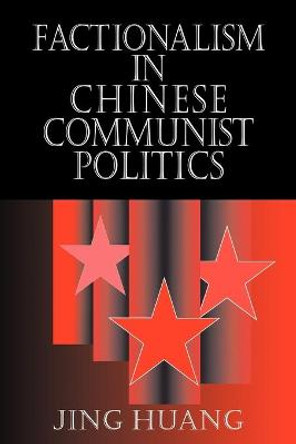Description
In this book, first published in 2000, Jing Huang examines factionalism's role in leadership relations and policy-making in Chinese communist politics.
Reviews
'... a fascinating book.' The Journal of Politics
'A highly original and insightful analysis which debunks many conventional wisdoms about FDI 's role in China's development. Huang demonstrates why a substantial part of the colossal FDI inflows since the early 1990s is more readily explained by deficiencies in China's institutions and domestic financial intermediation, than by the attractiveness of its investment regime. He points out that much FDI went into traditional labor-intensive industries in China, often sidelining private domestic entrepreneurs. He also shows how FDI influenced China's broader reform strategy and process in positive ways. Indispensable reading for the serious student of China's economic transition.' Pieter Bottelier, former representative of the World Bank in China and adjunct lecturer at Kennedy School of Government, Harvard University
'Huang's level of detail and ability to investigate 'sensitive' issues is unrivalled; ... there is no denying the richness of evidence that this volume presents. It is a star example of the ability that now exists for 'normalizing' CCP political history through knowledge and refinement of interpretation. Jing Huang's book not only presents us with a new way of looking at conflicts within Chinese Communism, but also, and perhaps more importantly, shows younger scholars how the patient attention to facts may crack what may once seemed the most impenetrable of historical vaults.' Journal of Cold War History
Book Information
ISBN 9780521622844
Author Jing Huang
Format Hardback
Page Count 480
Imprint Cambridge University Press
Publisher Cambridge University Press
Weight(grams) 870g
Dimensions(mm) 229mm * 152mm * 30mm








